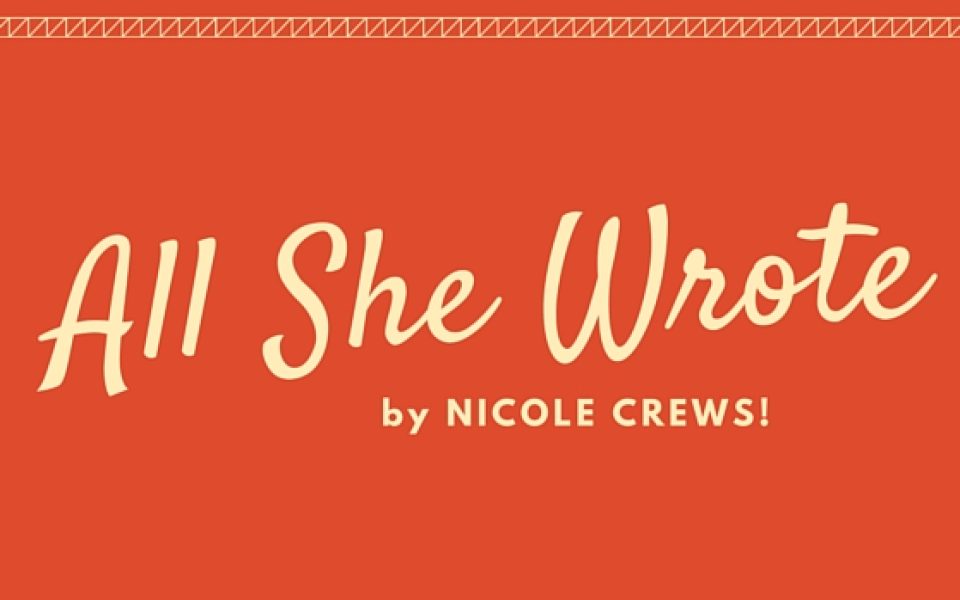Me: Do you remember when I was a kid and you forced me to go to clown camp at UNCG and you spent the day hanging with your painterly friends on Tate Street? That was my first taste of wanting to change places with you.
Mother: Yes. I’ve never seen a child so fascinated with band fliers, record stores and counterculture.
Me: Oddly enough I’m friends with a lot of those countercultural “kids” now.
Mother: So I see clown camp paid off.
If you live long enough, you might be lucky enough to be a part of a pocket of time that is preserved in a golden amber. For some, it’s a sliver of childhood, for others, a high school halo — but for a group of Greensboro teens and twentysomethings that time was roughly between 1979 and 1983 and the place was called Friday’s, and it was all about the music. Well, mostly. The drinking age was still 18 then.
Marvin Veto, a Greensboro-based art director and graphic designer, was part of the scene: “I heard a rumor that Tate Street was undergoing a revival. It seems there was a band called the Alibis who played regularly at a pizza joint down there called Friday’s. People I worked with kept telling me that this band, this place, this experience were all not to be missed. It turns out they were right. The Alibis were not a sexy band (some may disagree) — but they were hip to the new wave and punk stuff out there, and its connections to the roots of ’60s rock. They brought it all together with a brilliant repertoire of covers. They found the common thread between the Ramones and Paul Revere & the Raiders; between the Clash and the Bobby Fuller Four. So, I loved them; we all loved them. At first they were the reason why we kept coming back to Friday’s every week to drink and dance the night away. They were the default flag-bearers for the scene.”
Massachusetts-based photographer Rusty Moore, who graduated from Greensboro’s Page High in 1977, says he remembers driving down Tate Street in 1980 and something struck a chord.
Moore, whose work has been shown at the Corcoran Gallery in the exhibit Salad Days: The DC Punk Revolution, earned his chops shooting bands at Friday’s and other local venues for the zine and for his own devices. The cream of the early ’80s crop from across the country made appearances at Friday’s. Black Flag along with the Circle Jerks, the Butthole Surfers, the Violent Femmes, VietNam and REM all darkened the door of the venerable institution.
Veto, who — pre-desktop publishing — made band posters and buttons as a sideline along with Also Aswell, another scenester, says, “I was there most weekend nights and many weeknights, for better or worse. Another band from Greensboro, Treva Spontaine & the Graphics, also popped onto the scene at the time and began playing Friday’s pretty regularly and soon built a loyal following. They performed many covers too, more in the pop vein, but also developed a repertoire of originals. Then there was the harder-rocking quasi-punkish Trueheart, who also did originals. It eventually seemed that Treva’s band, the Alibis, and Trueheart were sort of the three ‘house bands’ of Friday’s.
“Treva’s band went through about 10 name changes and ended up as the Graphic. Both Garry Collins and Doug Baker played in Treva’s band at one time or another, and they played in the Alibis too.”
The Greensboro scene flourished in a pre-information era underground way — via obscure ’zines and word of mouth. Aswell’s downtown loft served as home to “happenings,” where live music, booze and other forms of recreational escapism set the bar for house parties, but Friday’s was Ground Zero for the era until it closed in 1983. The scene lives on via Facebook at the Friday’s Reunion page that has more than 300 members, many of whom post regularly.
“People came from Winston-Salem and probably even further away to make the weekend scene there — dress up in their best new-wave gear and pogo the night away,” says Veto, “Everyone there sort of knew they were right in the thick of something rare, wonderful and probably historic.”
Editor’s Note: This column originally ran on Oct. 1, 2014.
Join the First Amendment Society, a membership that goes directly to funding TCB‘s newsroom.
We believe that reporting can save the world.
The TCB First Amendment Society recognizes the vital role of a free, unfettered press with a bundling of local experiences designed to build community, and unique engagements with our newsroom that will help you understand, and shape, local journalism’s critical role in uplifting the people in our cities.
All revenue goes directly into the newsroom as reporters’ salaries and freelance commissions.


Leave a Reply